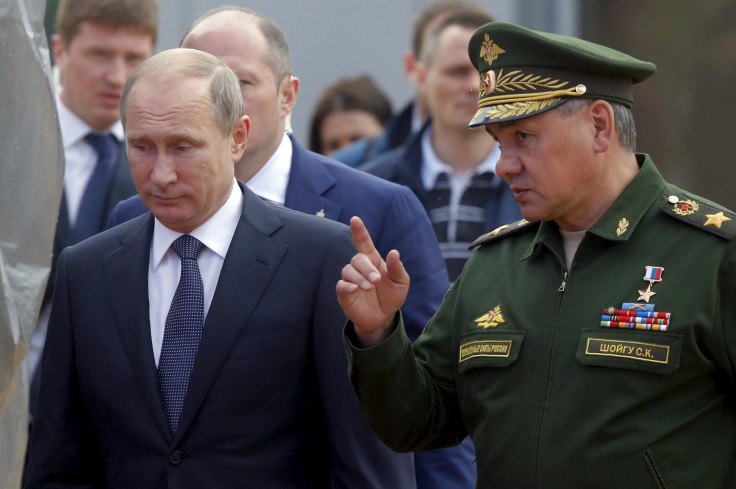Russia To Launch Bulava Ballistic Missiles In Military Exercises By End Of 2015

Russia plans to perform several test launches of its Bulava ballistic missiles by the end of 2015, according to a report. The launches will occur just weeks after Russian President Vladimir Putin announced the expansion of Russia’s nuclear arsenal in a move that sparked international criticism and NATO countermeasures.
“Several launches are being planned by the end of the year,” a source within Russia’s Navy told Russian-owned Tass. The Bulava ballistic missiles will be launched from Russia’s Borey-class submarines, though additional information on the tests was not made available. It will be the first time Russia tested its Bulava missiles since late last year.
The Russian military also plans to bolster its force of Borey-class submarines, with an additional eight submarines set to be ready for service by 2020. The vessels are capable of holding a stockpile of 16 Bulava missiles each.
More than 40 intercontinental ballistic missiles will be added to Russia’s standing nuclear stockpile by the end of 2015, Putin announced last month, according to the BBC. The Kremlin has ordered widespread upgrades and changes to Russia’s armed forces in recent months as part of a bid to modernize the nation’s military by the end of the decade. Both NATO and the European Union have repeatedly condemned Russia’s military expansion, particularly in the aftermath of the Russian annexation of Crimea in March 2014 and Moscow’s purported support of separatist rebels active in Eastern Ukraine.
“This nuclear saber-rattling of Russia is unjustified. It’s destabilizing, and it’s dangerous,” NATO Secretary-General Jens Stoltenberg said in a statement last month. He added the alliance would take necessary “proportionate” steps to counteract Russia’s military expansion.
To bolster NATO’s presence in Eastern Europe, U.S. Secretary of Defense Ash Caster said the Pentagon would station roughly 250 pieces of heavy weaponry, including tanks, in six nations near Russia. Poland, Romania, Bulgaria and the Baltic States of Estonia, Lithuania and Bulgaria will each host a portion of the heavy weaponry, despite Russian objections.
© Copyright IBTimes 2025. All rights reserved.




















